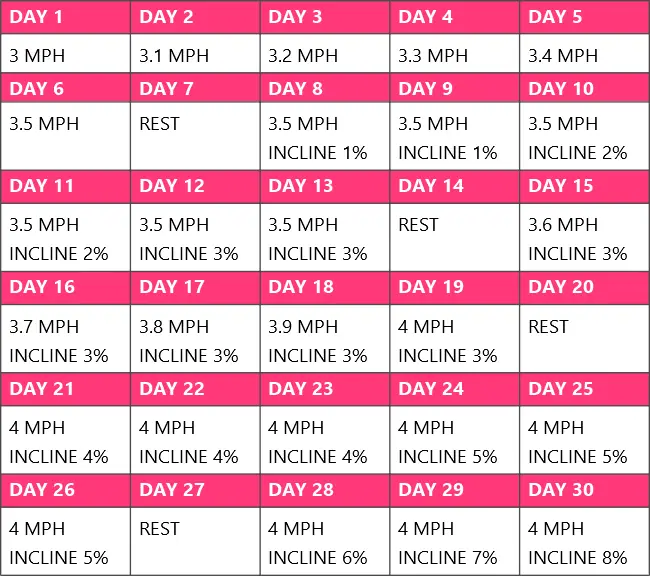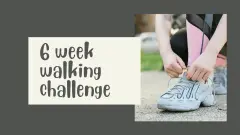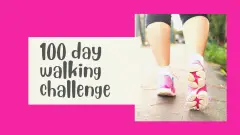This 30 minute treadmill challenge is a beginner level plan to get you into a daily habit of treadmill walking. The time spent walking is 30 minutes all through the challenge, but the speed and incline gradually increase over the 30 days to make your walking more challenging.
Intensity level: beginner
Benefits: this challenge will improve your cardio fitness as well as toning up your legs
Safety: please read the general safety information here
What you need: flat, comfortable footwear and – obviously – a treadmill. See a treadmill buying guide here. You should also have a drink of water to hand so that you can take frequent sips to avoid dehydration.
30 minute treadmill challenge chart
The chart shows the speed and incline for every day of the challenge. Days 1-6 are zero incline. Warm up and cool down every day with 5 minutes at 3mph/zero incline. The remaining 20 minutes should be done at whatever speed/incline is shown in the chart.

How much cardio exercise do you need?
Cardio exercise is any type of physical activity that gets your heart rate up and your blood flowing. It is important for overall health and can help to reduce your risk of heart disease, stroke, type 2 diabetes, and some types of cancer.
The American Heart Association (AHA) recommends that adults get at least 150 minutes of moderate-intensity aerobic activity or 75 minutes of vigorous-intensity aerobic activity each week. You can also do a combination of moderate- and vigorous-intensity activity.
Moderate-intensity activity means that you can talk but not sing while you are doing it. Vigorous-intensity activity means that you cannot talk while you are doing it.
Here are some examples of moderate-intensity aerobic activity:
- Brisk walking
- Swimming
- Biking
- Dancing
Here are some examples of vigorous-intensity aerobic activity:
- Running
- Jumping rope
- Playing sports
As this challenge progresses, the intensity level moves from moderate towards vigorous.
Related to 30 minute treadmill challenge
Further reading
NHS England – Physical activity guidelines for adults aged 19 to 64

